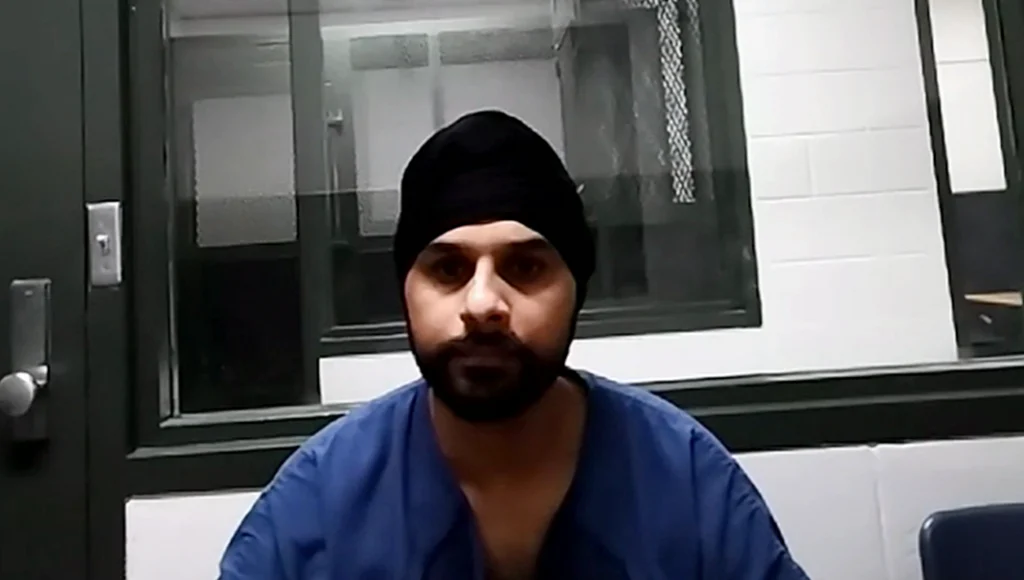Tragic Florida Crash Highlights Immigration and Trucking Safety Concerns
In a somber Florida courtroom on Thursday, the legal proceedings for Harjinder Singh, a 28-year-old truck driver from India who entered the U.S. illegally in 2018, continued to unfold. Singh faces three counts of vehicular homicide stemming from a devastating crash in Fort Pierce that claimed three lives last August. The court appearance, conducted via video conference from jail, centered on defense requests for independent blood sample analysis and vehicle inspection before evidence is released from police custody. Judge Lawrence Mirman granted a continuance, pushing the next jury docket call to January 15, 2026, giving both sides additional time to prepare their cases. Through an interpreter, Singh confirmed his understanding of the proceedings, while his attorney noted that despite being indigent, Singh had received some third-party assistance for his defense.
The case has drawn significant attention not only for its tragic outcome but for troubling revelations about how Singh obtained his commercial driver’s license (CDL). According to senior officials from the Florida Attorney General’s Office, Singh failed his CDL knowledge exam ten times between March and May 2023, and failed his air brakes knowledge exam twice before eventually receiving a license in Washington state. Despite apparent English proficiency issues, the Washington company that trained Singh attested he could speak the language adequately. California subsequently granted him another commercial license, raising serious questions about interstate oversight of commercial driving credentials and safety standards.
Bodycam footage released in August has become a critical element in the broader discourse surrounding this case. The video shows Singh being pulled over for speeding in New Mexico just a month before the fatal Florida crash. During this encounter, Singh’s limited English proficiency became evident as the interaction progressed, with the officer ultimately struggling to communicate with him. Investigators examining the Florida accident reported that Singh had failed English and road sign tests, underscoring concerns about whether he could adequately understand critical safety information. The fatal crash allegedly occurred when Singh attempted an illegal U-turn, causing his 18-wheeler to jackknife and a van to collide with it, resulting in three deaths.
The case has now become emblematic of a larger national safety and immigration debate, with Transportation Secretary Sean Duffy taking decisive action on October 15th. Duffy announced a crackdown on states failing to enforce English language requirements for commercial drivers, declaring: “I put states on notice this summer: Enforce the Trump Administration’s English language requirements or the checks stop coming.” He specifically called out California as “the only state in the nation that refuses to ensure big rig drivers can read our road signs and communicate with law enforcement,” framing the issue as fundamentally about public safety on America’s highways. This strong stance reflects growing concerns about whether adequate safety standards are being maintained in the commercial transportation industry.
The political and policy implications of this case have continued to expand, with the Trump administration recently withholding more than $40 million in federal highway safety funds from California specifically for failing to enforce federal English proficiency standards for truckers. This significant financial penalty represents an escalation in federal efforts to ensure compliance with safety regulations that many view as essential for highway safety. The case has become a flashpoint in broader discussions about immigration enforcement, professional licensing standards, and the balance between federal oversight and state autonomy in regulating commercial transportation.
As this case continues to move through the legal system, it serves as a sobering reminder of the real-world consequences when regulatory systems fail to adequately screen commercial drivers. Three families are forever changed by the loss of loved ones, while the political and policy debate intensifies around immigration status verification, language proficiency requirements, and interstate reciprocity in commercial licensing. With the trial still more than a year away, the broader implications of this case will likely continue to influence transportation policy, immigration enforcement, and public safety discussions at both state and federal levels, potentially leading to significant reforms in how commercial drivers are licensed and monitored across state lines.











